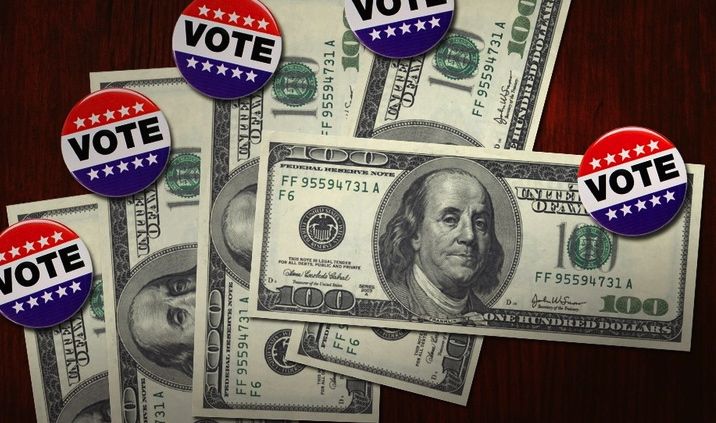SC-1: The Vote Cost
Lots of cash was spent during the “Republican” primary for the South Carolina first congYou must Subscribe or log in to read the rest of this content.
Lots of cash was spent during the “Republican” primary for the South Carolina first cong

14 comments
Am I the only one who believes it is insane that candidates can “buy” votes through advertising, particularly on TV? From what I read, it seems most political pundits would say that the candidate who raises the most money has an advantage, and it seems like a high percentage of that is spent on TV advertising. I guess it’s the whole “name recognition” thing.
I guess that underscores how dumb the majority of the electorate really is, if airing political ads on TV can make such a difference. These must be the same people who think Myrtle Manor is “real.”
A politician with a big campaign budget can’t easily “buy” votes from other candidates with equally big or bigger campaign budgets. The biggest point of having a big war chest is to eliminate the nobodies that run against you who actually want to do something and fix shit. Once that’s out of the way, it mostly comes down to out-campaigning the other sleazeballs, but even that is sometimes impossible.
16 people ran, most of them because they felt that they already had a name in politics. If most of them had known SC is still dumb enough to vote for Sanford after his many disgraces, they likely wouldn’t have run. Bostic likely has his concession speech printed out and folded neatly in his coat pocket.
You answered your own Q… Sanford left nothing to chance. Now the big Q, what did others spending 250k+ gain? I believe you may be able to reach Teddy @christophersstbarth for comment…
Am I the only one who believes it is insane that candidates can “buy” votes through advertising, particularly on TV? From what I read, it seems most political pundits would say that the candidate who raises the most money has an advantage, and it seems like a high percentage of that is spent on TV advertising. I guess it’s the whole “name recognition” thing.
I guess that underscores how dumb the majority of the electorate really is, if airing political ads on TV can make such a difference. These must be the same people who think Myrtle Manor is “real.”
A politician with a big campaign budget can’t easily “buy” votes from other candidates with equally big or bigger campaign budgets. The biggest point of having a big war chest is to eliminate the nobodies that run against you who actually want to do something and fix shit. Once that’s out of the way, it mostly comes down to out-campaigning the other sleazeballs, but even that is sometimes impossible.
16 people ran, most of them because they felt that they already had a name in politics. If most of them had known SC is still dumb enough to vote for Sanford after his many disgraces, they likely wouldn’t have run. Bostic likely has his concession speech printed out and folded neatly in his coat pocket.
You answered your own Q… Sanford left nothing to chance. Now the big Q, what did others spending 250k+ gain? I believe you may be able to reach Teddy @christophersstbarth for comment…
Regarding Koon & Limehouse, the winners in the spend-the-money sweepstakes above:
As Curtis Bostic would say, “God is good.”
Regarding Koon & Limehouse, the winners in the spend-the-money sweepstakes above:
As Curtis Bostic would say, “God is good.”
Damn, Limehouse would have had better luck handing out twenties to random people and saying “Vote for me!” May have been slightly illegal, but hey, more economical, right?
Pints and cartons of Kools
Damn, Limehouse would have had better luck handing out twenties to random people and saying “Vote for me!” May have been slightly illegal, but hey, more economical, right?
Pints and cartons of Kools
I guess we could say that Chip is the “biggest loser”.
I guess we could say that Chip is the “biggest loser”.